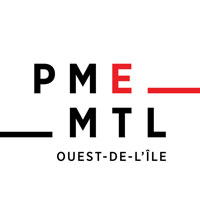A brief by John Burrascano, Industrial Commissioner
The current overall Canadian and Québec provincial economy can be doing much better as the Coronavirus pandemic continues to take a toll. On the commercial real estate front in Montréal, the office and retail sectors of the industry have suffered important setbacks. On the other hand, the industrial sector has continually surprised us well into the second wave of the Coronavirus pandemic as it has been active in terms of demand and proven to be very resilient in the face of this pandemic.
In sum, the industrial real estate market is, "sitting pretty", in an otherwise uncertain global business climate. Current vaccination programs, however, offer much promise.
A Glimpse of the Overall Economic and Pandemic Picture
By the second quarter of 2020, many economies of the world were beginning to slowly bounce back from the first wave of the pandemic. We saw this in Europe, Asia, the United States, Canada and Québec. By the beginning of October of last year, however, we were in the second wave of the pandemic and governments were forced to implement new public health measures to combat against the spread of the disease. Advanced world economies were still rebounding from the first wave but authorities this time applied new health measures that attempted to protect the public but have a lesser negative impact on their economies in comparison to the more stringent general lock-downs involved with the first wave. Québec provincial authorities approached the second wave in the same manner. It became clear that the necessity to apply any new and strict measures during the second wave could lead to harsher economic problems going into 2021.
Highly awaited news of coming Coronavirus vaccines last November gave people hope and it became crystal clear that economic growth was hampered by the second wave and that the new vaccines should be able to generate a positive impact on the global economy.
In the province of Québec, public health measures in effect since October 2020 were extended until January 11, 2021 negatively affecting the ending quarter of 2020 and first quarter of 2021.
In Canada and the US, key monetary policy was put in place in order to keep interest rates and inflation low in order to allow their economies to recover into 2023.
By mid-December 2020, the global economic picture looked grim since the Fall period principally due to required tighter public health restrictions. In the province of Québec and many countries around the world, it was felt that such measures would have a poor effect on their economies but widespread vaccination would provide positive economic impact by mid-2021.
In the table below, provided is a forecast of GDP rates for Canada and the province of Québec. It indicates that both Canada and Québec should perform economically better this year.
LOCATION
CANADA QUÉBEC
2020 -5.7 -5.3
2021 4.1 4.5
2022 3.7 2.8
Source : Société des Caisse Desjardins, December, 2020.
The industrial sector has continually surprised us well into the second wave of the Coronavirus pandemic as it has been active in terms of demand and proven to be very resilient in the face of this pandemic.
The Pandemic and Industrial Market in Montréal and the West Island
In their Q4, 2020 Industrial Market Report for Montréal, Colliers International confirms that while the office and retail real estate markets experienced a marked decrease in overall activity levels, Montreal’s industrial market had robust demand and proved its resilience during the pandemic of 2020, principally led by the demand for space from the e-commerce industry. In the same report, Colliers indicates that the vacancy rate for the Greater Montreal Metropolitan Area was a very low 1,4% in Q4, 2020. That number was 1,9% for the same period 2019 (Colliers International, 2019: 3).
In Q4, 2020, the West Island reached an astounding vacancy rate of 1% and Lachine’s was equally impressive at 1,5% (Colliers International, 2020: 3).
CBRE’s Q4, 2020 industrial Marketview report for Montréal pin-points a secondary source of demand for industrial space, namely, the food sector and online grocery retailers. The report also reveals that at the end of 2020, the lack of supply of industrial product drove average net asking rental rates to a record $7.73 per square foot compared to $5.33 per square foot in Q4, 2015. The average sale price of an industrial building in Q4, 2020 was $151.16 per square foot, up from $111.24 in Q4, 2019 (CBRE, 2019: 1).
Vacancy Rates Will Decline & Rental Rates and Sale Price Will Rise
Indications are that the world and Canadian economy will improve in 2021. By mid-year, world economies are expected to ameliorate in correlation to amplified Coronavirus vaccination efforts. Ensuing anticipated recovery across most sectors of the economy and resultant performing overall Canadian and Québec economy is expected to encourage and sustain demand for industrial space throughout Montréal.
In lieu of a lacking supply of existing industrial product and no significant amounts of newly built industrial buildings coming to market over the horizon, vacancy rates will decline further and both average asking rental rates and sale price of such buildings will, in all probability, continue to rise.
***
Sources
CBRE, 2019. "A Year in Review : Skyrocketing Values, Plummeting Availability." Marketview-Montréal Industrial, Q4, 2019, pg 1.
CBRE, 2020. "A Year in Review : Montréal Industrial Sets New Benchmarks." Marketview-Montréal Industrial, Q4, 2020.
Colliers International, 2019. Greater Montréal Area Industrial Market Report, Q4, 2019, pg 3.
Colliers International, 2020. Greater Montréal Area Industrial Market Report, Q4, 2020.
Société des Caisse Desjardins, 2020. Economic and Financial Outlook, "2021 : Here and Elsewhere, Vaccination Campaigns Will Boost Economic Growth." Economic Studies, December 18, 2020, from Table 1, pg. 2.
PME MTL
Ouest-de-l'Île
1675, Transcanadienne
Bureau 301
Dorval, Québec, H9P 1J1
514 426-2888Follow us
